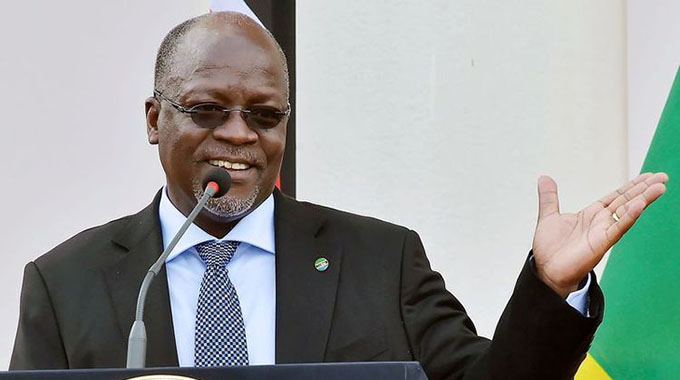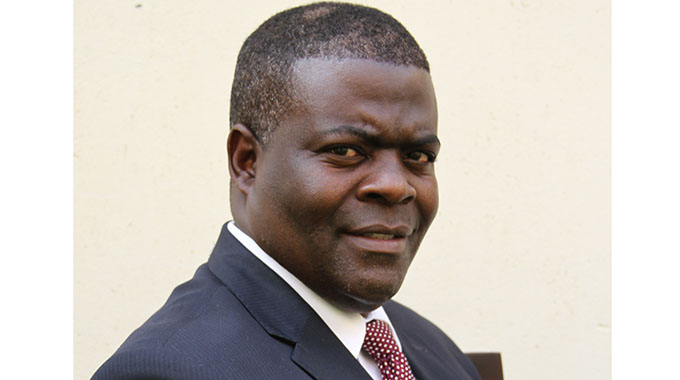Editorial Comment: Sadc’s anti-sanctions stance opens new frontier

For more than two decades, Zimbabwe has sustained its call for the removal of illegal sanctions imposed by a few Western countries, United States and the European bloc following Government’s decision to redistribute land for the benefit of the landless majority.
Over the years, the call has been growing loud and clear from individual African countries, progressive Western and Asian embassies in slamming the sanctions imposed on Zimbabwe.
It is heightening to note that the regional body, SADC has added its voice in amplifying the call for removal of the illegal sanctions to enable the country to reconstruct, taking advantage of the firm foundation set by President Mnangagwa.
During the recently ended SADC Summit held in Tanzania, SADC countries declared October 25, as solidarity day against illegal sanctions and resolved to conduct various activities in their respective countries.
We commend this high-level of brotherhood exhibited by the southern African countries to ensure an end to such a callous decision by the West, which is hurting the ordinary people and the region at large. Such a solidarity regional call, should bring to an end the illegal sanctions that have annihilated everything that represents Zimbabwe.
The main opposition wing in Zimbabwe, the Movement for Democratic Change-Alliance, a litany of civic organisations and other schizophrenic individuals opposed to the Government have been pontificating that there are no sanctions imposed on Zimbabwe by the United Kingdom, the European Union, the United States and their Western allies. As a result, in their wisdom or lack of it, they regard everyone who has been calling for removal of the illegal sanctions either dull or a ZANU-PF sympathiser.
But for all we know, the illegal sanctions have been instrumental to the economic quagmire that Zimbabwe finds itself in. Ordinary people, ordinary lives have been brutalised with the effects of the illegal sanctions, which have literally thrown millions into economic abyss.
The economic situation that Zimbabwe finds itself in today has got nothing to do with the ill-conceived narrative that the Government is failing its people, but it is because of the illegal sanctions, where the country can no longer access lines of credit and trade ordinarily.
Who does not know that Zimbabwe has not been receiving Western development assistance, access to International Monetary Fund and World Bank lines of credit, as well as significant international investment because of the illegal sanctions?
Without access to external lines of credit and meaningful investment, Zimbabwe’s productive sectors cannot thrive, which constraints economic growth and job creation resulting high unemployment and civil strife.
US sanctions on Zimbabwe are guided by the Office of Foreign Assets Control (OFAC), which enforces economic and trade sanctions based on the US foreign policy, and the Zimbabwe Democracy and Economic Recovery Act (Zidera), a law which imposed and stipulates the economic sanctions against Zimbabwe.
The US sanctions on Zimbabwe have affected the country’s ability to access foreign lines of credit, as well as to process international payments. Only a few regional and international institutions have been extending financial help of any sort to the country, thanks to Zidera, a monster that was created by the MDC-Alliance and its allies
Zidera, bars all major global financial institutions in which the US has swaying influence not to give Zimbabwe any significant development finance, and the list includes (International Monetary Fund), the World Bank, African Development Bank and European Investment Bank.
Any global financial institution risks facing heavy penalties or sanctions from the US if discovered to have facilitated transactions with Zimbabwe. The list of companies that have directly been affected by the embargo in Zimbabwe include CBZ Bank, ZB Bank and BancABC.
In 2017, CBZ Bank was slapped with a $385 million fine by OFAC for thousands of financial transactions done on behalf of ZB Bank, then under economic sanctions imposed by the US.
And the previous year, OFAC had fined Barclays Bank Plc $2,48 million to resolve potential civil liability for 159 apparent violations of the Zimbabwe sanctions regulations.
As we speak, Zimbabwe’s banks and money transfer agencies are facing problems in meeting their customers’ obligations owing to the termination of correspondent-bank arrangements between local banks and international finance institutions.
There is also OFAC, which says that the transactions from Zimbabwe should be scrutinised for compliance risk. OFAC also intercepts any transaction from or to Zimbabwe, which it feels aids the power, position and situation of Zimbabwe with regard to economic performance.
Zimbabwe is also excluded from the African Growth and Opportunity Act (whose purpose is to assist the economies of sub-Saharan Africa and to improve economic relations between the United States and the region). These major economic pillars have placed immense constraints on the Zimbabwean economy.
Such stringent conditions have forced people from different divergent ideologies for the removal of economic sanctions that were imposed on Zimbabwe by Western countries.
Among other voices who have been calling for the removal of the economic sanctions are, South Africa’s Minister of Finance, Mr Tito Mboweni; South Africa’s opposition leader of Economic Freedom Fighter party, Mr Julius Malema; the founder and executive chairman of Econet, Mr Strive Masiyiwa and a local businessman and chief executive of Alpha Media Holdings, Mr Trevor Ncube.
We are therefore elated by the Sadc decision to declare October 25, as solidarity day against illegal sanctions, a day which would be commemorated through sustained campaigns until they are lifted.








Comments